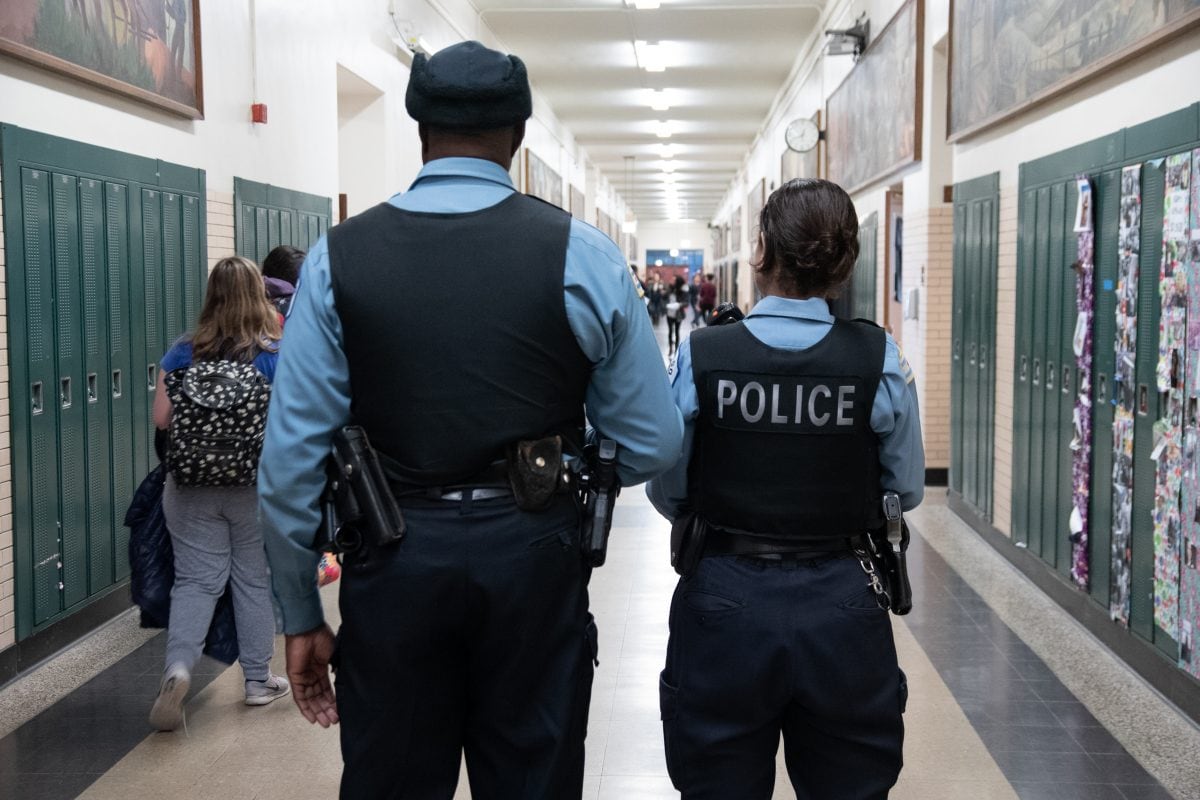Forty Chicago public schools soon will decide whether or not to keep police officers stationed on their campuses — part of a districtwide plan to re-evaluate safety plans.
During Wednesday’s monthly board meeting, Chief Safety and Security Officer Jadine Chou said the district has been changing its approach to safety since summer 2020 and is considering reducing or eliminating police in schools.
There are 59 police officers stationed across 40 Chicago Public Schools. Each school will convene a safety committee of administrators, staff, parents, and students before Local School Councils vote by June 2, Chou said.
The Whole School Comprehensive Safety Plan was developed in partnership with five community groups, including Mikva Challenge and COFI, to empower school communities to make the decision of retaining or removing officers, Chou said.
“We said we really want to do this in such a way that engages community stakeholders,” Chou said. “We don’t want this to be a top-down decision.”
The presentation comes as Chicagoans decide on a new mayor — with public safety a top issue among voters. Former Chicago Public Schools CEO Paul Vallas and former teacher and union organizer Brandon Johnson are on the ballot and differ vastly on education issues, including police at schools. Vallas supports having police in schools to deter shootings, while Johnson said police have no place in schools.
Even while dozens of schools have moved away from officers on campus, the district still maintains a partnership with police, Chou noted.
Last summer, the district approved a $10.2 million contract to station police officers at 40 campuses in the 2022-23 school year. The contract covers salaries and benefits for 59 police officers at campuses mostly on the South and West Sides. Other schools voted to remove police, or never had them on campus.
In 2020, the murder of George Floyd by Minneapolis police officers prompted a nationwide conversation about removing police officers from schools. In Chicago, some students, parents, and activists called for the removal of officers from schools and for shifting those resources to mental health and restorative practices.
Dozens of campuses have voted in recent years to shift funds away from punitive discipline measures and toward more restorative practices, such as healing circles and alternative interventions.
Schools that remove police officers can put the money they save toward safety measures on campus. So far, schools have used about $3.8 million of those funds to hire youth intervention specialists, at-risk student coordinators, and security officers, and to create social and emotional learning programs, among other initiatives.
Mauricio Peña is a reporter for Chalkbeat Chicago, covering K-12 schools. Contact Mauricio at mpena@chalkbeat.org.





